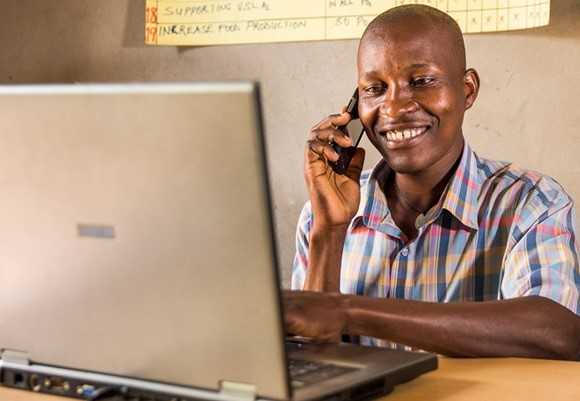Share your coffee stories with us by writing to info@comunicaffe.com.
HAMBURG, Germany – During the Coronavirus pandemic, Hanns R. Neumann Stiftung (HRNS) increased the use of digital support to smallholder coffee farmer families in project regions. This support did not happen only through phone calls. Digital training sessions were conducted, training videos produced, a coffee sustainability classroom went online, dialogue through messenger groups increased, a radio show started and webinars were organized.
The overall response from farmer communities to digital solutions was very good. HRNS therefor conducted a survey in the current project regions Ethiopia, Uganda, Tanzania, Indonesia, Brazil, Guatemala and Honduras to find out about the status of digital readiness in the communities.
“It shows that they are ready for digital trainings and want them. Access to hardware is also good and growing. With additional investments, digital trainings can be further rolled out efficiently and remaining problems in accessing digital content can be tackled,” says Tobias Voigt, HRNS M&E Coordinator.
Respondents from all countries, age groups and sex rate digital trainings as useful. It also seems that coffee communities are on the edge of a sort of digital leapfrogging as availability of smartphones is good and (SMS-)Apps are used for economical activities. More than half of the farmers in Brazil, Central America and Indonesia own a smartphone. In Uganda, Tanzania and Ethiopia around 10% do so. Asked for smartphones on the household level, availability gets significantly higher.
“Still, farmers face problems to access the internet with their smartphones. Biggest concerns are network quality and internet bundle prices,” says Voigt.
HRNS’ digital reaction to movement and contact restrictions due to the Coronavirus pandemic showed that the digital readiness of project beneficiaries is high throughout all age groups. HRNS believes that this is the momentum to increase investments into digital trainings and support solutions for smallholder families. It is an important step for the extension work of the future.
This does not only include the digital connection with farmers. Extensionists equipped with smart devices can utilize digital training methods like videos detailing promoted practices. Such materials need to be developed and databases to be set up. As farmers are indicating their willingness to receive virtual trainings, digital infrastructure also becomes an asset for farmer organizations.
The results and analysis of the survey can be downloaded from the HRNS-Website.
Methodology: 380 interviews in seven countries via phone from June 2 to June 12, 2020
Download here the summary flyer.















